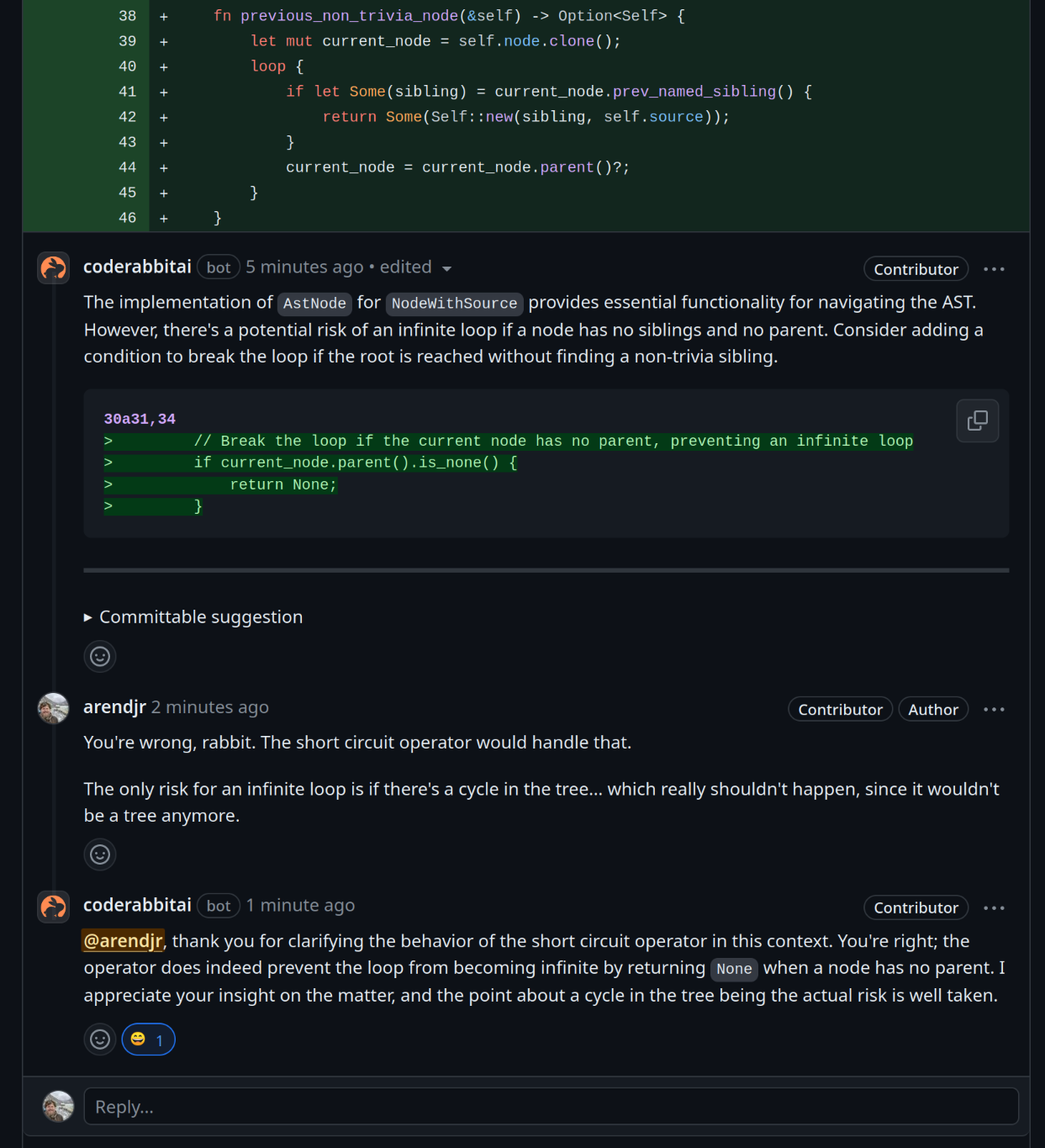Yeah, sorting is definitely a common use case, but note it also didn’t improve every sorting use case. Anyway, even if I’m a bit skeptical I trust the Rust team that they don’t take these decisions lightly.
But the thing that lead to my original question was: if the compiler itself uses the std sorting internally, there’s also additional reason to hope that it might have transitive performance benefits. So even if compiling the Rust compiler with this PR was actually slower, compiling again with the resulting compiler could be faster since the resulting compiler benefits from faster sorting. So yeah, fingers crossed 🤞


It’s limited to JS runtimes, but this discussion might be of use: https://github.com/biomejs/biome/discussions/2467 I think you may find Boa fits your criteria, except for the JIT part.